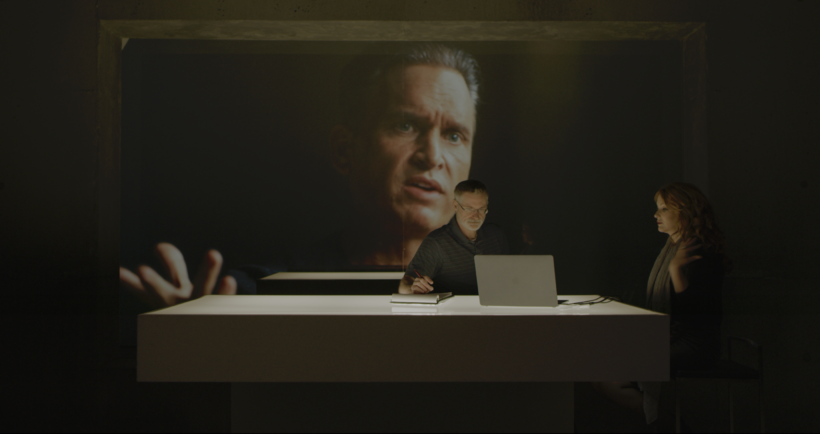The Disinformation of a Con Artist
When analyzing the rhetoric and statements from former President Donald Trump over his time in office and since, a clear pattern emerges that shows him to consistently mislead and deceive the American public. Through lies, exaggerations, and conspiracy theories, Trump has built a persona largely defined by disinformation and the spreading of dubious claims without evidence. A closer examination of his words and actions paints a portrait of a man who cannot be trusted to engage with truth and reality.
A Track Record of Falsehoods
Throughout his career as both a businessman and politician, Trump has gained notoriety for making demonstrably false claims about issues large and small without regard for facts. Fact-checking organizations have repeatedly documented thousands of lies, misleading statements, and baseless assertions made by Trump over the years. Even on simple matters like the weather or crowd sizes, Trump has shown a propensity for embellishing or just making things up. On more substantive policy matters, his statements often directly contradict objective evidence and reporting. This pattern of dishonesty began long before entering politics and has only escalated with thebully pulpit of the presidency. His former attorney Michael Cohen testified that Trump frequently inflated the value of his assets and properties for promotional reasons while lowballing them to avoid taxes. As president, claims about immigration, trade, foreign policy and more routinely flew in the face of established facts. Rather than correct falsehoods when confronted, Trump typically doubled down and attacked fact-checkers, demonstrating a casual relationship with the truth.

A Master Manipulator of Conspiracy Theories
Beyond regular dishonest statements, Trump has also shown a unique talent for promoting and legitimizingoutlandish conspiracy theories without evidence. During his time in office, he boosted an array of factually dubiousclaims, from suggesting vaccines cause autism to thinly-veiled racist tropes about Barack Obama’s place of birth. Most alarmingly, Trump aggressively promoted lies of widespread voter fraud after losing the 2020 election and encouraged the mob that later stormed the US Capitol based on those same lies. While some conspiracy theories pre-dated Trump, his platform as president enabled an unprecedented amplification and mainstreaming of patently false and toxic claims. Rather than reassure the public with facts, Trump sowed seeds of doubt in institutions and democracy itself. Even after bans from social media, Trump keeps signaling a willingness to fan the flames of division and undermine confidence in elections. Without accountability or concern for truth, those in power can use disinformation for political advantage in harmful ways.
An Inability to Admit Error or Take Responsibility
Beyond the sheer volume of falsehoods, another alarming pattern with Trump is an inability or unwillingness to acknowledge misleading statements, walk back claims shown to be untrue, or take ownership of errors. When confronted with clear evidence contradicting a statement, Trump almost never simply says “I was mistaken” or “I was wrong.” More typical is angrily insisting claims were true in spite of proof, changing the subject, or attacking those providing facts. This refusal to admit fault enables Trump to perpetually shift the goalposts of debate rather than engage sincerely. It also prevents learning and course correction, as one is never wrong if never conceding a falsehood. For the public, it becomes impossible to separate statements made in error versus intent to deceive without a good faith effort to rectify inaccuracies. The overall impact is one of a constant moving target devoid of reliability or responsibility. An individual that cannot own up to fallibility cannot be meaningfully engaged with or trusted as a credible source of information.
The Damage Done By Toxic Disinformation
While concerning in any context, the volume and potency of false claims from Trump is especially worrisome given his role as highest officeholder in the nation. The damage done by legitimizing conspiracy theories and cries of “fake news” aimed at fact-based outlets should not be underestimated. It undermines faith in experts, journalists investigating wrongdoing, and civic institutions essential for accountability and democracy. Perhaps most alarming are efforts to delegitimize elections, a direct threat to the most fundamental principles of self-governance. Moving forward, the risk of continued disinformation campaigns persists and accountability is needed. Strategies must be developed to curb amplification of demonstrably false claims among political leaders and influence operations online. Citizens also hold responsibility for discerning truth and supporting fact-based journalism as a counterweight. Ultimately, integrity, responsibility, and good faith in dialogue may be the best inoculation against distortions meant to deceive rather than educate. With discernment and vigilance, disinformation tactics can be resisted and truth uplifted.
Moving Past the “Information Reckoning”
While assessing damages, understanding how America arrived at this point, dubbed an “information reckoning” by experts, also matters. Factors like echo chambers online, polarization, and lack of shared reality preceded Trump but were exacerbated under his leadership. Moving forward, rebuilding consensus on facts and accountability is paramount for democracy to function. A willingness to honestly confront feedback and change course where evidence shows errors, not just double down in the face of proof, will also be important from leaders. Admitting past mistakes could help restore integrity to public officials and debates. Fact-checking, media literacy education, reforms to address viral misinformation, and bringing truth and ethics back to the fore also have meaningful roles. With open dialogue and by focusing on shared hopes over differences, progress seems possible. But it will take vigilance against renewed untruths and cooperation across ideological lines to spread verifiable facts, not distortion. By prioritizing objectively proven reality over partisan agendas or short-term political gain, integrity in leadership and discourse may yet return.
Renewing Commitment To Shared Truth And Civic Duty
While the past few years have tested democratic resolve like few other times, hope remains if integrity and good faith can be restored. All individuals and institutions upholding truth, transparency and accountability have roles to play. As citizens, critically assessing information and supporting trustworthy journalism helps democracy. Engaging respectfully across differences based on facts, not fears or lies, can also help address root challenges. When we see errors, name them, but do so to elucidate truth, not divide.
Most of all, renewing commitment to discerning objectively proven reality strengthens society. Facts matter, but so does applying them with wisdom, empathy and care for fellow inhabitants on this planet. If integrity and earnest pursuit of shared truths return as highest guiding lights, there are reasons to believe democracy’s best ideals can yet shine through these times of turbulence. But it will take vigilance and moral courage from all quarters to make progress reality. Our collective future depends on rising to meet this challenge.
